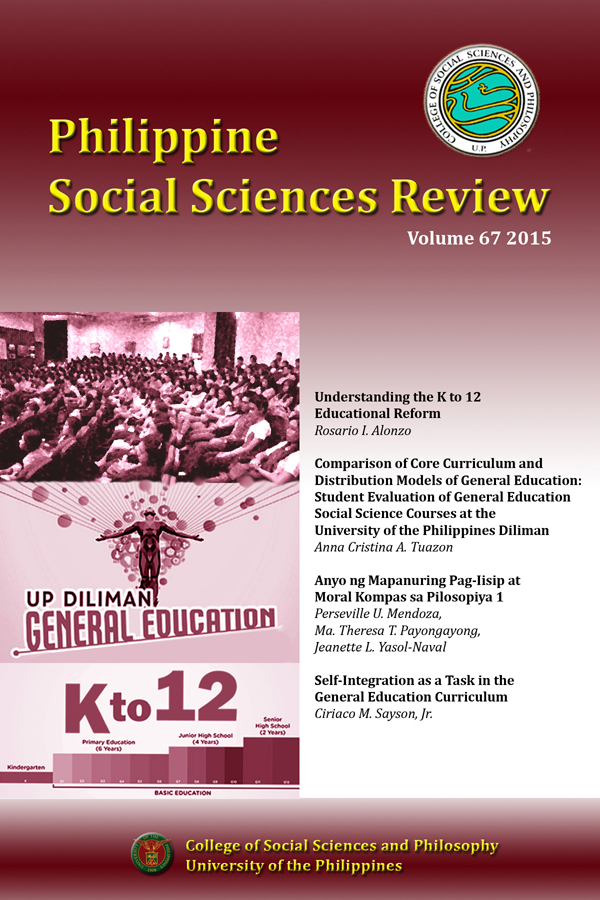Comparison of Core Curriculum and Distribution Models of General Education: Student Evaluation of General Education Social Science Courses at the University of the Philippines Diliman
Abstract
The general education program of the University of the Philippines Diliman has undergone numerous changes, focusing on whether students should follow a core curriculum or follow a distribution model within which they may choose their own courses. This study analyzed the influence of the current General Education (GE) Hybrid Program on the student evaluation of two core general education social science courses: Philosophy I and Kasaysayan I. Quantitative analysis of 520 sections’ responses in the Student Evaluation of Teacher showed that general education courses were evaluated more favorably during the GE Hybrid Program (when these courses were required) than during the previous program (when these courses were optional). In particular, Philosophy I was evaluated more favorably during the GE Hybrid Program than during the previous program while Kasaysayan I showed no significant differences. These imply that requiring courses does not negatively affect student perceptions of the course. Moreover, changes made to the Philosophy I course in preparation for the GE Hybrid Program suggest other factors are at play in increasing favorable student perceptions of a general education course.
Published
2016-08-03
How to Cite
TUAZON, Anna Cristina A..
Comparison of Core Curriculum and Distribution Models of General Education: Student Evaluation of General Education Social Science Courses at the University of the Philippines Diliman.
Philippine Social Sciences Review, [S.l.], aug. 2016.
ISSN 2672-3158.
Available at: <https://journals.upd.edu.ph/index.php/pssr/article/view/5261>. Date accessed: 02 oct. 2025.
Section
Articles
Keywords
general education, program evaluation, social science, college students


